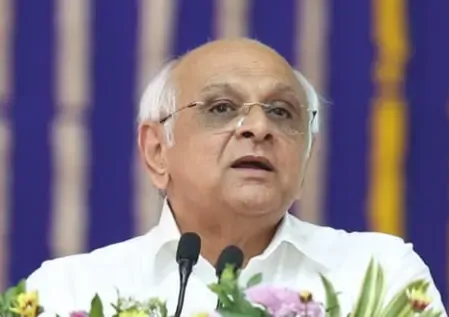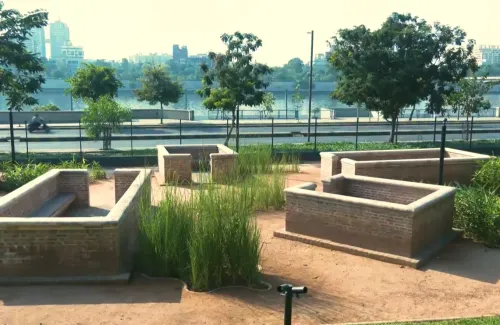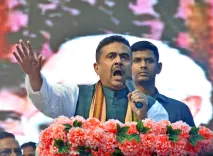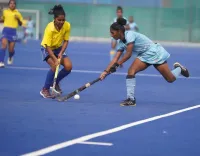Did Telangana Achieve a Win After EAC Denied Clearance for Andhra Pradesh's Project?
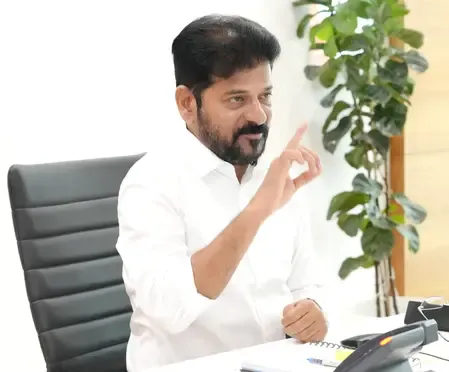
Synopsis
Key Takeaways
- EAC denies clearance for the Polavaram-Banakacherla Link Project.
- Telangana claims victory in safeguarding its water rights.
- Environmental assessments are crucial for inter-state projects.
- Legal frameworks like the GWDT must be adhered to.
- Further consultations with the CWC are necessary.
Hyderabad, July 1 (NationPress) The Congress-led government in Telangana has heralded a significant achievement in its campaign to protect the state's interests as the Central Expert Appraisal Committee (EAC) has declined to approve the proposed Polavaram–Banakacherla Link Project from neighboring Andhra Pradesh.
N. Uttam Kumar Reddy, Telangana's Irrigation Minister, expressed that the efforts of the Telangana administration have yielded positive results, as the EAC of the Environment Ministry determined that it cannot provide environmental clearances for the Polavaram-Banakacherla initiative.
He highlighted that the EAC took into account the letters sent by him, Chief Minister A. Revanth Reddy, and Minister Uttam Kumar Reddy to the central authorities.
During a meeting convened in Delhi on Monday, the EAC made it clear that it would not authorize the Polavaram-Banakacherla project due to numerous objections raised.
The committee asserted that an examination of the Godavari Water Dispute Tribunal (GWDT) award is essential before granting any permissions. It emphasized the necessity of consulting the Central Water Commission (CWC) for environmental clearances.
Numerous complaints submitted to the EAC alleged that the project contravenes the 1980 GWDT decision, raising concerns regarding potential submergence in adjacent states like Odisha and Chhattisgarh.
On June 19, Revanth Reddy and Uttam Kumar Reddy met with Jal Shakti Minister CR Patil in Delhi, urging him to halt the Banakacherla initiative.
They contended that the Banakacherla project undermines natural justice and Telangana's interests, accusing Andhra Pradesh of violating the GWDT and the State Reorganisation Act.
They appealed to Minister Patil to reject the pre-feasibility report concerning the Godavari-Banakacherla project, advocating for justice and truth to prevail.
The Chief Minister brought to the Union Minister's notice the various concerns voiced by the people and farmers of Telangana regarding the handling of approvals for the Banakacherla project by the Union Finance Ministry and the Environment Ministry.
Revanth Reddy informed Patil that Andhra Pradesh's claims regarding the Banakacherla project being based on Godavari floodwaters are unfounded, as the 1980 GWDT does not mention floodwaters or surplus waters.
Meanwhile, Mahesh Kumar Goud, president of the Telangana Pradesh Congress Committee (TPCC), stated that Telangana has firmly defended its water rights by ensuring adherence to inter-state water agreements regarding Banakacherla.
In a post on 'X', he noted that while reviewing the Polavaram–Banakacherla Link Project, the EAC raised critical concerns regarding inter-state implications and possible violations of the 1980 Godavari Water Disputes Tribunal Award.
The Committee underscored the importance of prior consultation with the CWC to evaluate water availability and address legal and jurisdictional challenges. Consequently, the EAC has returned the proposal, advising the proponent to secure necessary clearances before moving forward.
"This represents a pivotal moment in Telangana's assertive approach to safeguarding its rightful share of river waters," remarked the state Congress chief.


